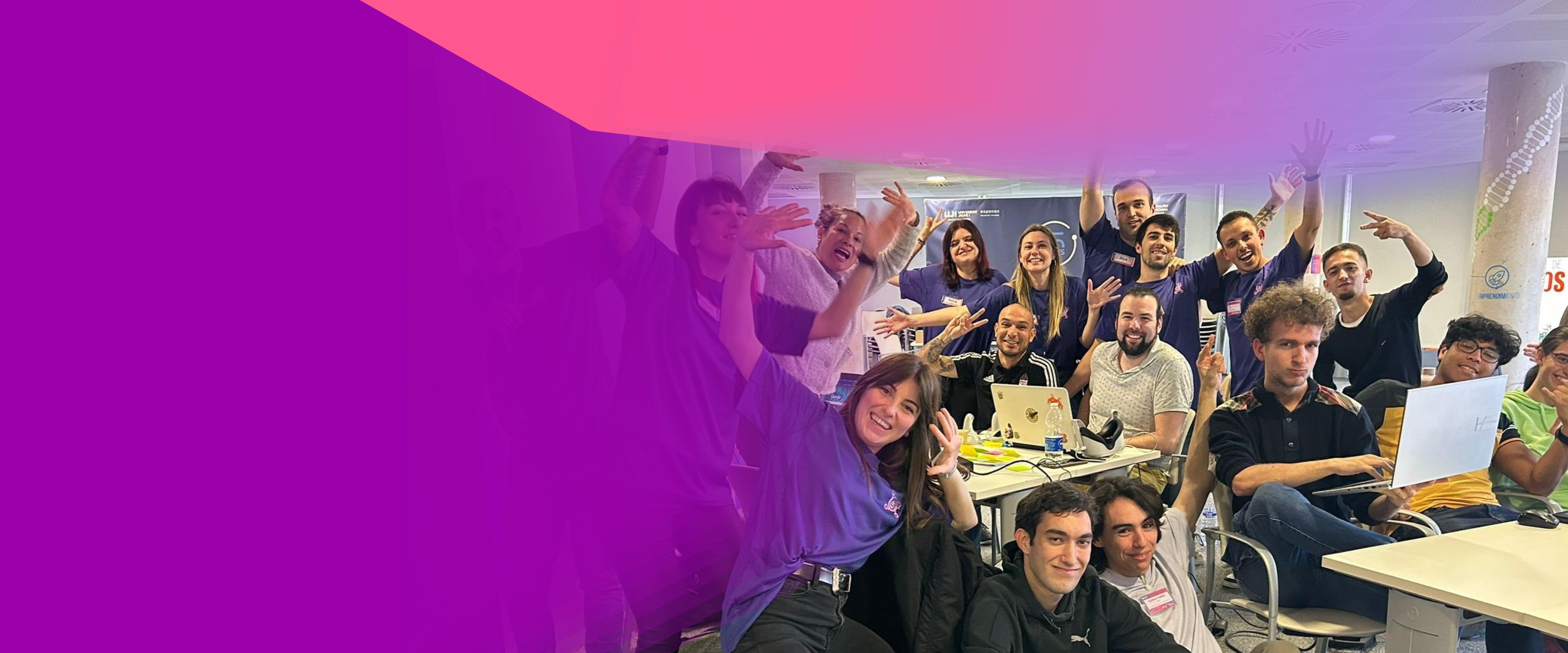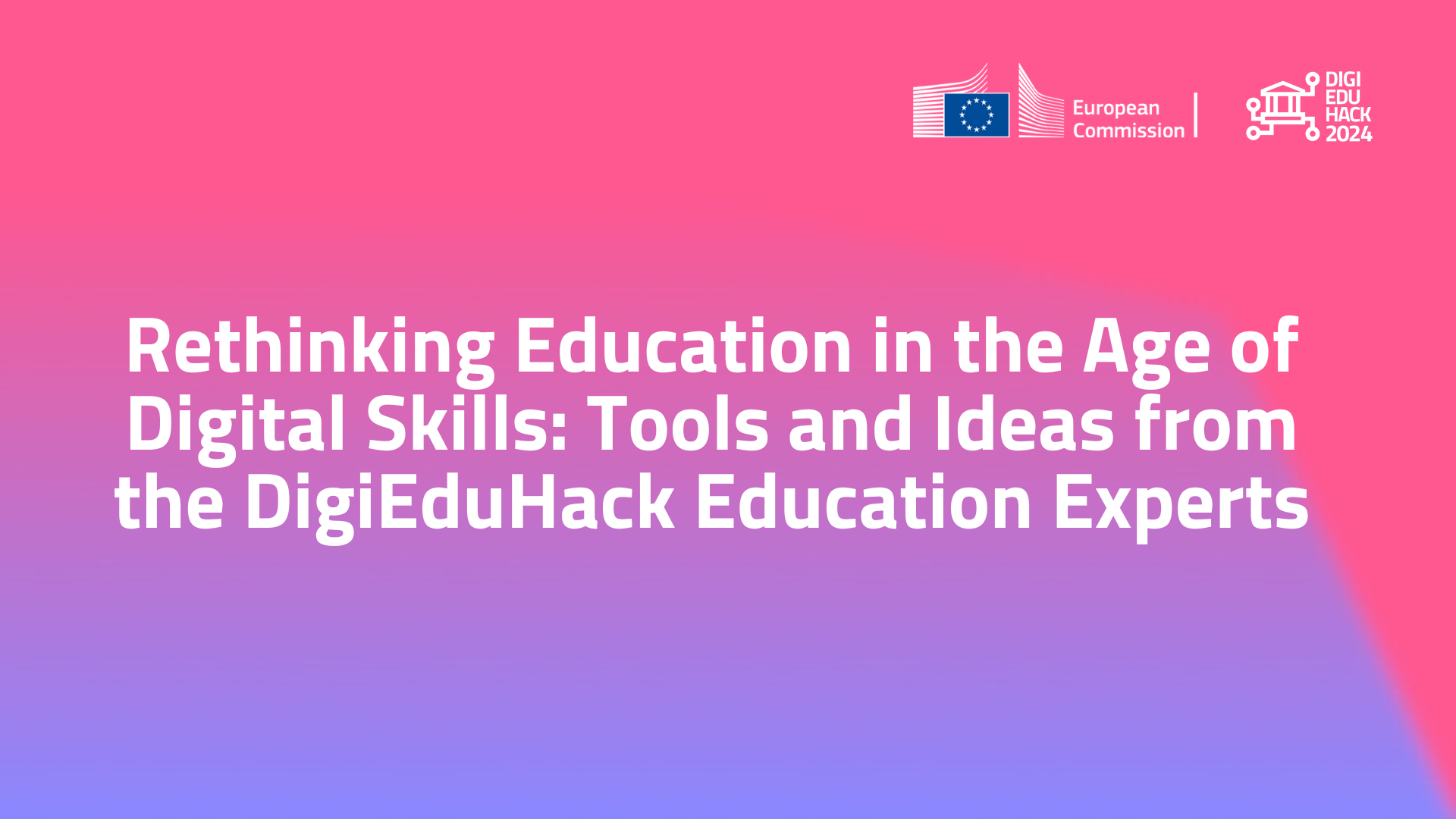Rethinking Education in the Age of Digital Skills: Tools and Ideas from the DigiEduHack Education Experts
Ahead of the 6th edition of DigiEduHack, our National Ambassadors and Steering Group members – a collective of educators, innovators, and digital education advocates – came together to explore one big question: How can we make digital education more inclusive, engaging, and meaningful?
Working across four thematic groups, ranging from accessibility to digital well-being, experts shared practical tools, strategies, and insights. Here’s what emerged from their exchange.
1. Access, availability and learning spaces and pedagogies
The challenge: Digital access remains uneven, especially affecting:
• Learners from rural and low-income environments
• Early learners & students with special needs
• Communities with low digital literacy
• Those experiencing AI anxiety (fear of being “left behind” or “replaced,” uncertainty about how to keep up with rapid changes)
Solutions:
- Open-source platforms & hybrid learning: These allow students to access content regardless of physical or economic barriers.
- Parental & educator training: Digital literacy programs for adults and caregivers help build home support systems.
- Inclusive pedagogies: Mindset shifts towards personalized, creative, and collaborative learning experiences.
Tools to try:
- YouTube educational channels such as CrashCourse, TED-Ed, etc.)
2. Learning experiences that build real skills
Challenge: Learning should be flexible, certified, personalised, and interactive.
Key ideas:
- Align national qualification frameworks with EU standards.
- Integrate AI fundamentals into early training programs.
- Use Massive Open Online Course (MOOC) platforms and professional learning networks to widen access to specialized content.
- Adapt general curriculum for digital tools to various audiences (e.g., teachers, company employees).
- Promote DigCompEdu platform and Open Networked Learning (ONL) for continuous digital skill development.
Highlighted Initiatives and Platforms:
These tools support both individual competency development and inclusive education policies.
3. Artificial intelligence, emerging technologies and data-driven education
Challenge: AI in education must be meaningful - not just an “add on”.
Key Recommendations:
- Contextual AI solutions: Tools like Datorium, built with feedback from 4,000 teachers, show how AI must be developed with educators’ input to ensure usability, accessibility, and alignment with local curricula.
- Real-world design challenges: Use AI tools in applied learning settings, simulating corporate or societal challenges.
- AI literacy: Empower both students and teachers with the knowledge to understand AI's benefits and risks, especially when curricular time is limited.
Useful Resources:
- European Commission’s Ethical guidelines on the use of artificial intelligence and data in teaching and learning for educators
Ethical Considerations:
Equity, transparency, and inclusion are core when designing data-driven education systems. Participants highlighted the importance of clearly communicating the ethical use of learner data and AI output.
4. Well-being in digital education and organisations’ capacity to digitalise and innovate
Challenges: Digital learning should not come at the cost of mental health. Teachers, in particular, face pressure to do more — often without the right support.
What helps:
- Personal AI assistants for teachers: Offering help with both teaching strategies and administrative tasks.
- Well-being apps: Designed for both teachers and students to manage stress, foster mindfulness, and conduct emotional check-ins.
- Clear workflows: Streamlined digital tools to minimize multitasking and improve focus.
Building Digital Capacity at the Organisational Level:
- Cross-sector communication and collaborative models: Creating networks for schools, universities, and companies to share solutions. Examples include the Cyber-Physical Learning Alliance (CPLAS25), which shows how partnerships can scale digital capability, as well as EdTech Denmark, TekForStå, and Denmark’s municipal learning networks.
- Student-centered design: Learners must be actively involved in the creation of EdTech tools and education policies.
A call for holistic digital education
The future of education is not just about going digital; it is about being inclusive, data-conscious, and centered on real human needs. The DigiEduHack community calls for a move away from scattered tool use and toward holistic strategies that balance accessibility, innovation, well-being, and ethical AI.
By bringing together educators, students, policymakers, and tech experts, we can create an education system where everyone has the opportunity to grow and succeed in today’s digital world.
DigiEduHack offers plenty of other learning opportunities. The 2025 edition brings together hosts and participants worldwide to co-create solutions on the theme “Rethinking education in the age of digital skills.”
Do not miss our latest webinars and a brand-new season of the podcast!

